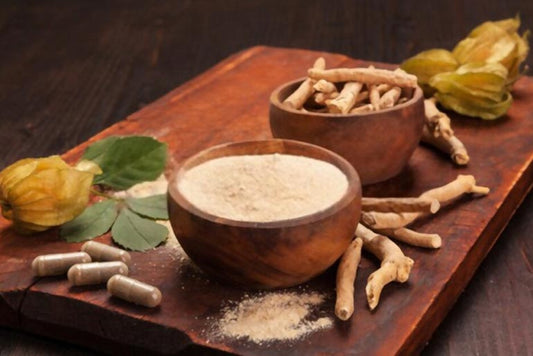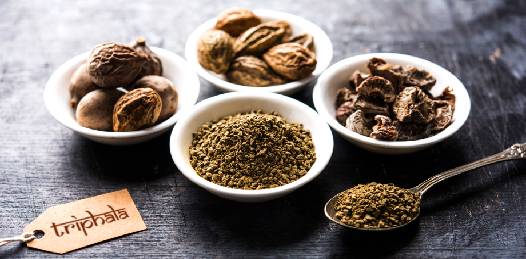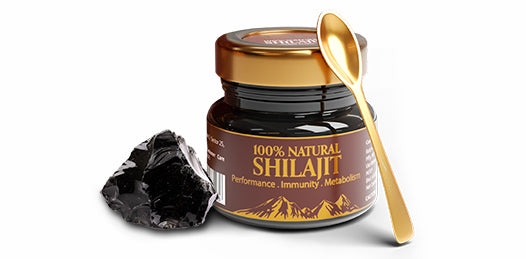‘Sarverogaapi mandagni’ is the primary doctrine in Ayurveda that asserts that weak digestive fire is the root cause of every disease. This statement shows that digestion and metabolism play a vital role in maintaining overall health. Digestion mainly comes before metabolism & healthy digestion leads to healthy metabolism. Recently, there has been a rise in popularity of ‘Gut & Gut health’ as well as among researchers across the globe. Your gut is more or less synonymous with your gastrointestinal system which includes your stomach, intestines and colon. Its main job is to digest food nutrients and eliminate waste materials through excretion.
It is believed that there are 200 different species of bacteria, viruses and fungi living inside your large intestine (gut). There are bacteria and other micro-organisms present in our gut called gut microbiome which helps break down food into nutrients needed by our bodies for various functions. These non-pathogenic organisms are also referred to as ‘sahaj krimi’ by ayurveda.

Interconnection
- The Gut-Skin Axis: Emerging research suggests a bidirectional relationship between gut and skin health, known as the gut-skin axis. Imbalances in the gut microbiome can contribute to skin issues, and vice versa. Weakened digestive fire leads to accumulation of metabolic toxins called ‘Ama’ in Ayurveda which reflects on skin through various skin conditions.
- Inflammatory Responses: Inflammation triggered by gut issues can manifest on the skin, leading to conditions like acne or rosacea. Conversely, inflammation in the skin can signal underlying gut problems.
- Stress Response: Stress can affect both gut and skin health. Stress is the one of the main causes of ‘Rasa dushti’ which implies metabolic toxins in the lymphatic system. These toxins show up on the skin as a sign of weakened digestive system. The gut has been termed the "second brain" due to its extensive network of neurons, and stress can disrupt gut function, potentially impacting skin health through mechanisms like inflammation and hormone regulation.
- Dietary Influence: Diet plays a significant role in both gut and skin health. Foods rich in fiber, probiotics, and antioxidants support a healthy gut microbiome, while a diet high in processed foods and sugar can contribute to gut dysbiosis and skin issues.
Ayurvedic Wisdom for Skin & Gut Wellness

- Digestive Fire (Agni): According to Ayurveda, a healthy digestive system is crucial for overall health, as it determines the body's ability to assimilate nutrients and eliminate waste. Agni represents the digestive fire, responsible for breaking down food and converting it into energy. Imbalances in Agni can lead to digestive issues and compromise overall health. Practices which keeps the digestive fire ignited shall be practiced which includes eating as per requirement, balanced meal, consumption of ‘Shadrasa’ i.e., all six types of tastes.
- Dietary Guidelines: Ayurveda emphasizes the importance of eating according to one's constitution (dosha) and the seasons. Foods that are easy to digest and nourishing are recommended. These may include cooked vegetables, whole grains, lentils, ghee, and digestive spices like ginger, cumin, and turmeric. Avoiding processed foods, excessive sugar, caffeine, and heavy, hard-to-digest foods is encouraged. One must consume probiotics to keep the gut microbiome healthy & the excellent probiotic is buttermilk.
- Herbal Support: Ayurveda utilizes various herbs and herbal formulations to support gut health. These may include variety of herbs like triphala (a blend of three fruits), aloe vera, licorice, ginger,turmeric, fennel, black pepper, cumin and many others. These herbs can help improve digestion, relieve gas and bloating, and support bowel regularity. These should be taken under the supervision of an ayurvedic physician.
- Detoxification (Panchakarma): Ayurveda recommends periodic detoxification to remove toxins (ama) from the body, which can accumulate due to poor digestion and lifestyle habits. Panchakarma, a series of cleansing procedures, aims to reset the body's natural balance and rejuvenate the digestive system.
- Stress Management: Ayurveda recognizes the strong connection between the mind and the gut. Stress and emotional imbalance can adversely affect digestion and skin health. Practices like yoga, meditation, and pranayama (breathwork) are recommended to manage stress and promote overall well-being.
- Skin Care: Ayurveda views the skin as a reflection of overall health and considers it an important aspect of beauty and well-being. Ayurvedic skincare involves both internal and external approaches. Internal approaches include diet and herbs that support healthy skin from within. External approaches involve using natural ingredients like herbal oils, clays, and botanical extracts for cleansing, moisturizing, and rejuvenating the skin.
- Dosha-specific Recommendations: Ayurveda categorizes individuals into three doshas: Vata, Pitta, and Kapha. Each dosha has its own unique characteristics and tendencies. Ayurvedic recommendations for gut and skin health may vary based on an individual's dominant dosha and any existing imbalances.

It's important to note that Ayurveda aims to address the root cause of health issues rather than just managing symptoms. Consulting with a qualified Ayurvedic practitioner can provide personalized guidance and recommendations for optimizing gut and skin health based on individual needs and imbalances.











